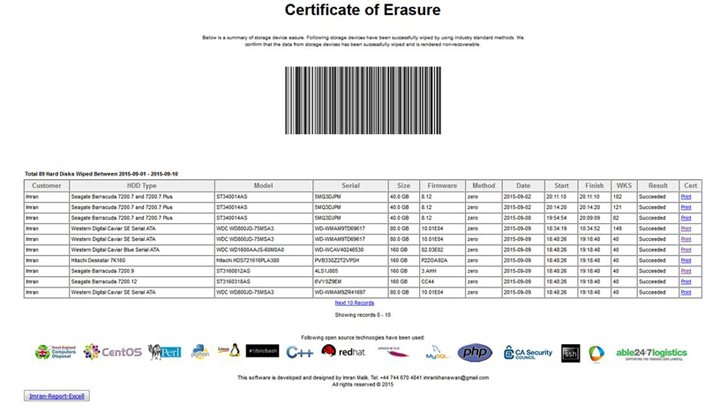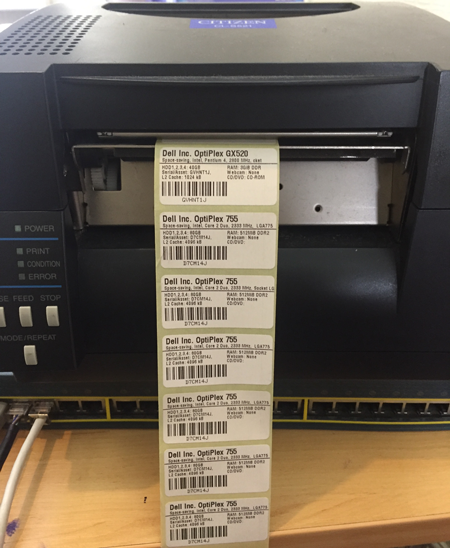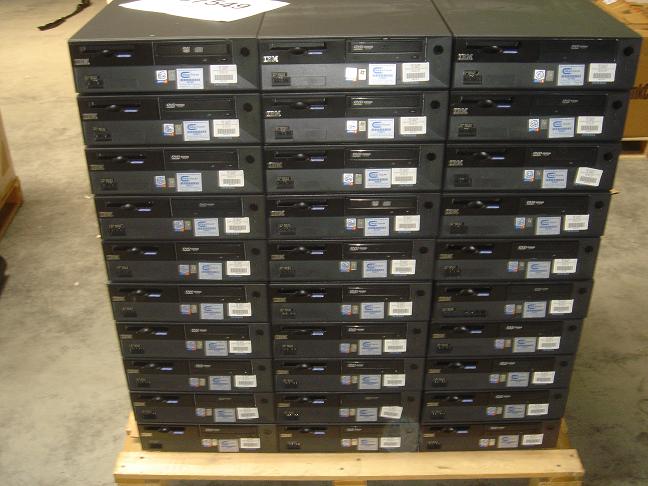The Importance of Data Destruction Certificates and NDW Software in Data Security
In the age of information technology, data is king. Companies and individuals alike generate and store vast amounts of sensitive and confidential information, making data security a top priority. Proper data disposal is a crucial aspect of data security, and one way to ensure that sensitive data is permanently erased is by obtaining a Data Destruction Certificate. This certificate provides tangible proof of secure data destruction and can be essential in safeguarding against data breaches and regulatory compliance issues. In this article, we will explore why Data Destruction Certificates should be produced for verification of data disposal, the risks of mixing wiped and non-wiped disks together, and how NDW (Non-Destructive Write) software can help eliminate this risk. We will also discuss how NDW software facilitates the issuance of Data Destruction Certificates and the numerous benefits it provides.

The Significance of Data Destruction Certificates
Data Destruction Certificates, also known as Certificate of Data Destruction or Data Erasure Certificates, are official documents issued by data disposal service providers. These certificates serve as proof that data stored on a device, such as a hard drive, has been securely and permanently erased. There are several compelling reasons why these certificates should be produced and retained:
Regulatory Compliance: Many industries and jurisdictions have stringent data protection and privacy regulations. Data Destruction Certificates demonstrate a commitment to compliance, providing legal evidence that sensitive information has been disposed of properly.
Audit Trail: In the event of an audit, organizations may be required to prove their adherence to data protection laws and regulations. Data Destruction Certificates offer a clear audit trail, showing that data was disposed of responsibly.
Liability Reduction: Holding Data Destruction Certificates can protect an organization from legal and financial liabilities in the event of a data breach. It demonstrates due diligence in safeguarding sensitive information.
Customer Trust: Public perception of an organization's commitment to data security can greatly impact customer trust. Providing Data Destruction Certificates can reassure clients that their data is handled with care.

Risks of Mixing Wiped and Non-Wiped Disks
The risks associated with mixing wiped and non-wiped disks are significant and can lead to potential data security breaches and compliance violations. Here are some of the key dangers:
Data Residue: When wiped and non-wiped disks are mixed, there is a risk of data residue being left behind on the non-wiped disks. This residue can contain sensitive information, making it vulnerable to unauthorized access.
Incomplete Data Erasure: If non-wiped disks are not properly tracked and managed, they may inadvertently contain sensitive data, leaving organizations exposed to the risk of data breaches and regulatory penalties.
Reuse of Disks: Non-wiped disks that are mistakenly reintroduced into the IT infrastructure can compromise data integrity. This can occur when disks are not correctly marked or tagged during the disposal process.
Reputation Damage: A single data breach can severely damage an organization's reputation, leading to customer trust erosion and potential legal consequences.
NDW Software and Its Role in Data Security
To mitigate the risks associated with mixing wiped and non-wiped disks, organizations should consider utilizing Non-Destructive Write (NDW) software. NDW is a cutting-edge technology designed to help organizations maintain better control over their data disposal processes. Here's how NDW software can help:
Data Tracking: NDW software provides a detailed record of each disk's status, including whether it has been wiped or not. This ensures that all disks are accounted for and prevents the inadvertent mixing of wiped and non-wiped disks.
Data Erasure Verification: NDW software includes built-in verification tools to confirm that data has been completely erased from the disks. This minimizes the risk of data residue and potential data breaches.
Disk Labeling and Tagging: NDW software facilitates the proper labeling and tagging of disks throughout their lifecycle. This helps to prevent non-wiped disks from being mistakenly reused or reintroduced into the IT infrastructure.
Data Destruction Certificates: NDW software streamlines the production of Data Destruction Certificates, ensuring that the documentation is accurate, reliable, and easily accessible for compliance purposes.
Benefits of NDW Software
Implementing NDW software in your data disposal process offers several benefits, including:
Enhanced Data Security: NDW software significantly reduces the risk of data breaches by ensuring complete data erasure and preventing data residue on disposed disks.
Regulatory Compliance: NDW software provides robust tracking and reporting capabilities, making it easier to demonstrate compliance with data protection regulations.
Improved Efficiency: The automation and centralization of data disposal processes through NDW software lead to increased operational efficiency and reduced human error.
Simplified Audits: Auditors can quickly and easily verify data destruction activities and produce Data Destruction Certificates, streamlining the auditing process.
Customer Trust: Demonstrating a commitment to data security and regulatory compliance with NDW software can enhance customer trust and loyalty.
Data security is of paramount importance in our interconnected world. Data Destruction Certificates play a critical role in ensuring that sensitive information is disposed of securely and in compliance with data protection regulations. The risks associated with mixing wiped and non-wiped disks are significant, making it crucial to adopt advanced technologies like NDW software.
NDW software not only helps eliminate the risks associated with mixing disks but also offers a range of benefits, including enhanced data security, regulatory compliance, improved efficiency, and the preservation of customer trust. To safeguard sensitive data and minimize data security risks, organizations should consider integrating NDW software into their data disposal processes and ensure the production of Data Destruction Certificates as a tangible proof of their commitment to data security.








